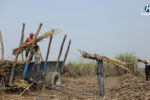KATHMANDU: Nepal can greatly reduce its vulnerability to climate-sensitive infectious diseases by improving its public health surveillance and prediction capabilities, says a paper due to be published April in Acta Tropica.
The paper, by Nepali and Australian scientists, identifies poor epidemiological research regarding climate-sensitive infectious diseases — both vector and food-borne — as a reason for Nepal’s inability to handle evidence-based identification, prediction, and surveillance against outbreaks.
The dengue outbreak in Nepal last year (July to September 2019), which resulted in more than 10,000 infections, was attributed to unexpectedly early monsoon rains, which showed the country’s high vulnerability to infectious disease outbreaks that are linked to global warming and climate change.
Inadequately trained staff, lack of support for public health researchers, poor quality infectious diseases data and political instability were listed as other key factors responsible for wide gaps in research in the study.
Says Dinesh Bhandari, lead author of the study and researcher at the University of Adelaide’s School of Public Health:
Establishing an integrated digital network of interdisciplinary experts in Nepal to support data sharing and inter-sectoral collaboration will help address the causative factors. It will also promote environmental health research and generate evidence to guide policy on climate change and its effects on human health.”
According to Bhandari, a review of Nepal-specific studies on climate change and vector-borne diseases found only eight that explored spatiotemporal distributions of disease vectors. These published studies lacked epidemiological insights on the risk of infectious diseases in shifting climate.
“We also found that the existing infectious disease control approach in Nepal merely focuses on disease-specific vertical programs. It ignores the opportunity to design and utilize a climate-based early warning system for prevention and control of infectious diseases,” Bhandari tells SciDev.Net.
The researchers say the country would significantly benefit from introducing climate-based early warning systems for timely prediction of conditions favorable for the emergence of diseases and facilitate timely responses to prevent mortality and morbidity from epidemics.
“Plugging the epidemiological research gap is important to identify the predictors, exact causes and impacts of climate variability on infectious diseases and prevention through informed and evidence-based decision making,” says Jos Vandelaer, WHO representative in Nepal.
Vandelaer says that while strengthening Nepal’s public health surveillance system, promoting inter-sectoral collaboration, improving public health capacity and enhancing community engagement in disease surveillance are vital, achieving them is not possible without greater technical support for public health researchers and data sharing among data custodians and epidemiologists.
Vandelaer notes that all South Asian countries and most low- and middle-income countries grapple with the problem of research gaps in climate-sensitive infectious diseases.
The institutional capacity of these countries, including diagnostic laboratories and surveillance systems, is under-resourced and often fragmented — a situation that makes them incapable of conducting serious epidemiological studies, says the WHO representative.









Comment